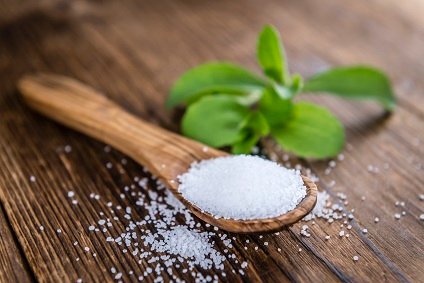Inside BENEO’s new pulse plant: pioneering sustainable protein from faba beans
Stevia contains active compounds known as steviol glycosides which is 30-150 times sweeter than the sucrose
According to a new study, global sales of stevia is expected to reach ~ US$ 310 Mn in 2019. The rise in the demand for the stevia can be attributed to its low-calorie content along with growing demand for effective solutions to counteract lifestyle diseases such as diabetes and obesity.
Powder extract of stevia continues to influence growth strategies, in the view of longer shelf-life and ease of transportation. As the powder extract accounted for ~90% share in 2018, manufacturers are specifically focused in this category which further include stevia blends and glycosides.
While conventional stevia continues to account for relatively high share in the market, the demand for organic variants is expected to increase at a robust rate in the coming years. An increase in health-awareness and inclination of consumers towards healthy products are some drivers for the growth of the organic stevia market.
Stevia find numerous applications in dairy food products, bakery products, dietary supplements, beverages, packaged food products, confectionery products, snacks, table top sweeteners, and others (electrolyte powder and medicinal formulations). Of these, significant application in beverages is likely to account for major share of manufacturers’ bottom lines.
WHO & Government Support for the Use of Stevia in the Food & Beverages Industry Boosting the Market Growth
The support from health organizations and governments is one of the key reasons for the growth of the stevia market. As today’s consumers interpret the safety of the product by looking for certifications and government approval, it becomes necessary for the manufacturers in the food and beverages industry to use appropriate ingredients to gain the trust of the consumers. Stevia has received approval from various regulatory bodies to be used as a natural sweetener in a number of end-use applications, thereby offering significant impetus to the market growth.
Manufacturers Emphasize on Building Consumer Trust through Transparency in Production
New technologies have provided consumers the accessibility to smart labels, through which, they can track the journey of the products. Consumers are nowadays asking food companies to increase the transparency of their products, going beyond free-from status, ingredients, and nutritional levels. Buyers are demanding to understand the background of the products – from where and how the ingredients were sourced to the manufacturing of the end product. In the food and beverages industry, trust and transparency have become major challenges, as there aren’t any strict regulations and guidelines laid down by governments regarding clean labeling. Companies have started using clean labeling as a catchword for promotional and marketing purposes, and have taken advantage of this to sell their products as clean label products. It is essential for manufacturers to adopt cleaner practices to sell their clean label food products without alienating the trust of consumers.
This study offers insights into the stevia market for the forecast period of 2019-2029. The stevia market is projected to record a CAGR of ~ 7% during the predefined timeframe.

